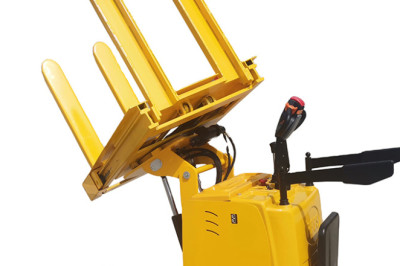views
In modern logistics, event planning, and even daily life, the demand for flexible, cost-effective storage solutions has surged. Among these, the storage tent has emerged as a versatile and practical option, bridging the gap between temporary shelters and permanent structures. Combining durability with portability, storage tents are transforming how industries and individuals manage space. This article explores their definition, core features, applications, and advantages, offering a comprehensive guide to understanding this innovative storage solution.
Definition and Core Structure
A storage tent is a semi-permanent or temporary shelter designed to protect goods, equipment, or vehicles from environmental elements. Unlike traditional storage buildings, which require extensive construction and fixed locations, storage tents are modular structures composed of a steel or aluminum frame and a weather-resistant fabric covering. The frame provides structural integrity, while the fabric—typically made of polyvinyl chloride (PVC) or polyethylene (PE)—ensures waterproofing, UV resistance, and durability.
The design of storage tents emphasizes ease of assembly and disassembly. Many models feature a "click-frame" system, where components snap together without specialized tools, enabling rapid setup in hours rather than days. This portability is a defining feature, allowing users to relocate the tent as storage needs evolve. Additionally, storage tents can be customized in size, shape, and color to suit specific requirements, from compact 3m x 3m units to expansive 20m x 50m warehouses.
Key Features and Advantages
Weather Resistance and Protection
Storage tents are engineered to withstand harsh conditions. Their PVC or PE fabrics are 100% waterproof and UV-stabilized, shielding stored items from rain, snow, and sun damage. For example, a logistics company storing seasonal inventory in an open yard can deploy a storage tent to prevent moisture-related deterioration, extending the lifespan of goods. Similarly, farmers use these tents to protect machinery from rust and crops from spoilage.
Cost-Effectiveness
Compared to brick-and-mortar warehouses, storage tents significantly reduce upfront costs. Construction expenses, permits, and long-term maintenance are minimized, making them ideal for short-term projects or businesses with fluctuating storage demands. A manufacturing plant facing a sudden surge in production can quickly install a storage tent to house excess raw materials, avoiding the need for costly expansions.
Flexibility and Scalability
Storage tents adapt to diverse scenarios. They can function as standalone units or be combined to create larger spaces. For instance, event organizers might link multiple tents to form a covered exhibition area, while a car dealership could use them as temporary showrooms during renovations. The ability to add features like windows, ventilation systems, or insulation further enhances their versatility.
Eco-Friendly Design
In an era prioritizing sustainability, storage tents align with green principles. Their reusable nature reduces waste, and the materials—often recyclable—have a lower carbon footprint than concrete or steel buildings. Some models, like those with translucent fabric, leverage natural light, cutting energy consumption for lighting.
Applications Across Industries
Logistics and Warehousing
Storage tents serve as overflow warehouses for e-commerce giants and small businesses alike. During peak seasons, such as holidays or sales events, companies deploy these tents to store inventory, ensuring timely order fulfillment without overcrowding main facilities. Their modular design also supports dynamic inventory management, allowing businesses to scale storage up or down as needed.
Agriculture and Farming
Farmers rely on storage tents to safeguard equipment, feed, and livestock. A dairy farm might use a tent to store hay bales, protecting them from mold, while a vineyard could shelter harvesting machinery during off-seasons. The tents’ breathable fabrics prevent condensation buildup, a critical factor in preserving agricultural products.
Construction and Industrial Sites
Construction projects often require temporary storage for materials like cement, steel, or tools. Storage tents provide a secure, weatherproof solution, preventing theft and damage. Industrial sites, meanwhile, use them to house hazardous materials safely, complying with environmental regulations.
Events and Recreation
From music festivals to sports tournaments, storage tents act as backstage areas, equipment shelters, or vendor booths. Their quick setup and aesthetic appeal make them popular for weddings, corporate gatherings, and community events. Even recreational users benefit; a family might install a small storage tent in their backyard to keep bicycles, kayaks, or gardening tools organized and protected.
Vehicle Storage
For those lacking garages, storage tents offer an affordable alternative to carports. They shield vehicles from hail, UV rays, and debris, preserving paint and interior quality. Classic car enthusiasts, in particular, value these tents for their ability to maintain optimal storage conditions without the expense of a permanent structure.
Choosing the Right Storage Tent
Selecting a storage tent involves evaluating several factors:
Size and Capacity: Measure the items to be stored and ensure the tent’s dimensions accommodate them with extra space for movement.
Material Quality: Opt for PVC fabrics for long-term use, as they offer superior durability compared to PE.
Frame Strength: Heavy-duty steel frames are ideal for industrial applications, while aluminum suits lighter, portable needs.
Additional Features: Consider ventilation, lighting, and security enhancements based on the stored items’ requirements.
Conclusion
The storage tent represents a paradigm shift in storage solutions, merging practicality with innovation. Its ability to provide secure, weatherproof, and customizable space makes it indispensable across industries, from logistics to agriculture, events, and personal use. By eliminating the constraints of permanent structures, storage tents empower users to adapt swiftly to changing demands, reduce costs, and embrace sustainable practices. Whether safeguarding valuable equipment, expanding warehouse capacity, or creating temporary event spaces, the storage tent stands as a testament to modern engineering’s capacity to meet evolving needs with efficiency and ingenuity. As industries continue to prioritize flexibility and cost-efficiency, the storage tent will undoubtedly remain a cornerstone of smart storage strategies worldwide.











